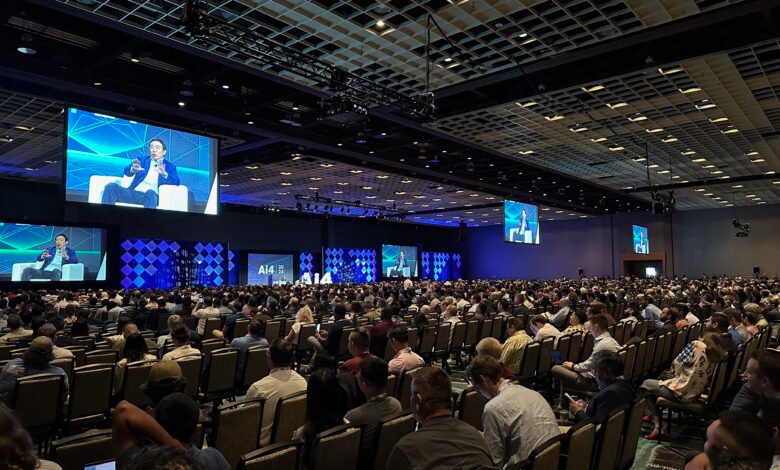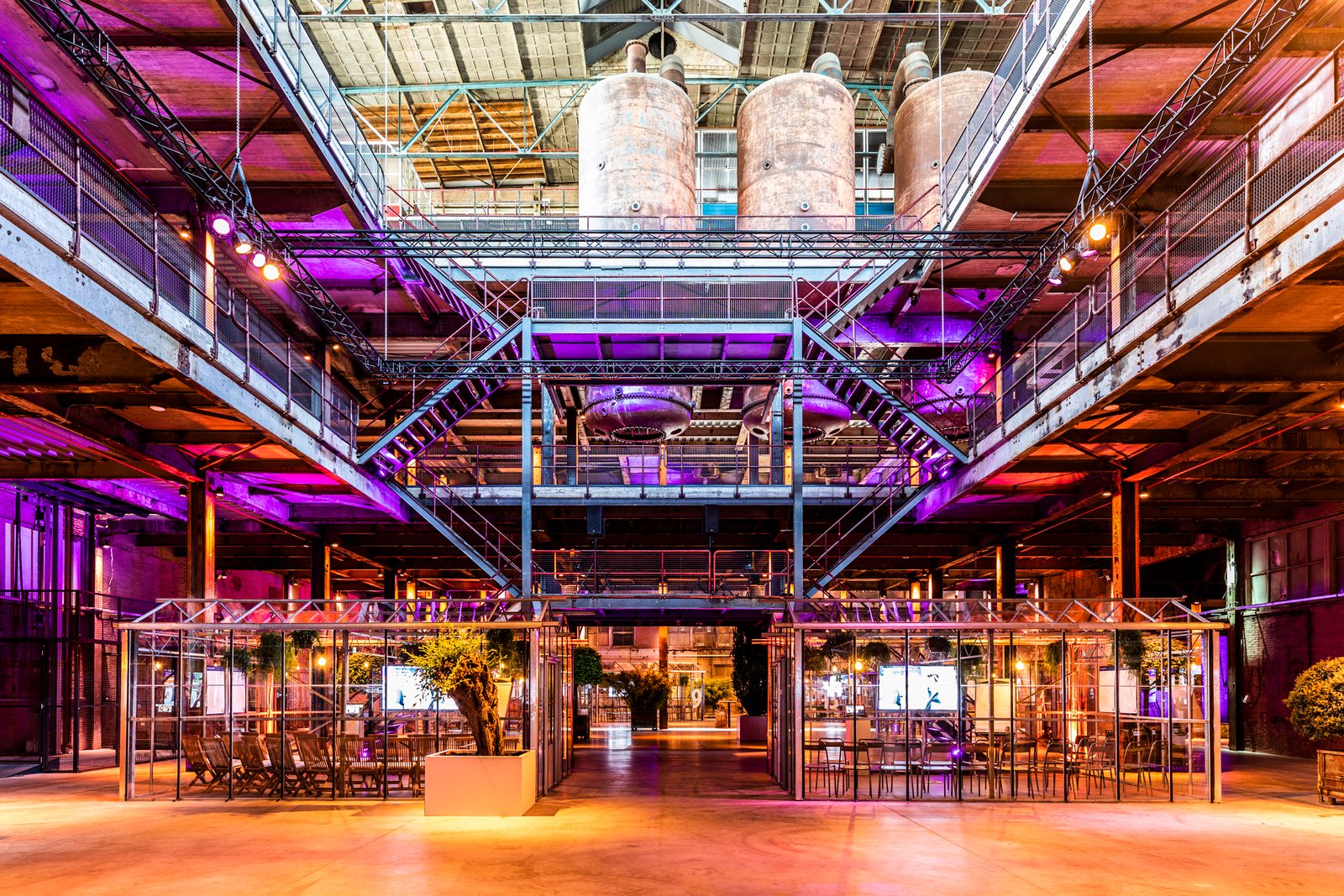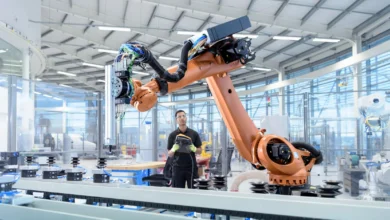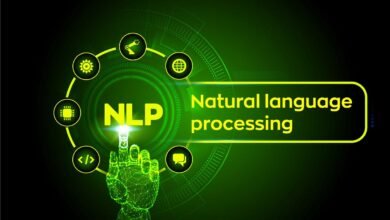
The artificial intelligence landscape offers numerous opportunities for professional development, networking, and knowledge acquisition through various conferences and events. Whether you’re a researcher, data scientist, machine learning engineer, or AI enthusiast, choosing between academic AI Conferences vs Industry Events can significantly impact your career trajectory and learning outcomes.
This comprehensive guide explores the fundamental differences between these two types of gatherings, helping you make an informed decision based on your professional goals, budget constraints, and learning preferences. Academic conferences traditionally focus on cutting-edge research, peer-reviewed papers, and theoretical foundations, while industry events emphasize practical applications, commercial solutions, and business networking opportunities.
The distinction between academic AI conferences and industry AI events has become increasingly blurred as technology companies invest heavily in research and academic institutions collaborate more closely with industry partners. Major tech corporations now regularly present at academic venues, while universities showcase their research at commercial exhibitions. This convergence creates unique opportunities but also makes the selection process more complex for attendees seeking specific outcomes.
The nuances between these event types are crucial for maximizing your return on investment, whether measured in knowledge gained, connections made, or career advancement opportunities. AI conference selection requires careful consideration of factors including content depth, networking potential, cost implications, and alignment with your current career stage and future aspirations.
This article will examine key differentiating factors, provide detailed comparisons of popular events in both categories, and offer strategic guidance for choosing the most beneficial conferences for your professional development journey in the rapidly evolving field of artificial intelligence.
Academic AI Conferences vs Industry Events
AI Conferences vs Industry Events serve as the cornerstone of scientific discourse in artificial intelligence research. These events are typically organized by professional societies, universities, or research institutions, with a primary focus on advancing theoretical knowledge and sharing cutting-edge research findings. The most prestigious academic conferences in AI include venues like NeurIPS (Conference on Neural Information Processing Systems), ICML (International Conference on Machine Learning), and AAAI (Association for the Advancement of Artificial Intelligence).
Research-Focused Content and Peer Review Process
The hallmark of AI Conferences vs Industry Events lies in their rigorous peer-review process. Papers submitted to these venues undergo extensive evaluation by domain experts, ensuring high-quality content and scientific rigor. This process typically takes several months, with acceptance rates often ranging from 15% to 30% for top-tier conferences. The research presentations at these events showcase the latest breakthroughs in machine learning algorithms, deep learning architectures, natural language processing techniques, and computer vision methodologies.
Academic conferences prioritize novelty, theoretical contributions, and experimental validation. Attendees can expect to encounter cutting-edge research that may not see commercial application for several years. The content depth at these events is substantial, with detailed mathematical formulations, algorithmic innovations, and comprehensive experimental evaluations forming the core of most presentations.
Networking Opportunities in Academic Settings
Networking at academic conferences offers unique advantages for researchers and academics. These events bring together leading researchers, graduate students, postdoctoral fellows, and faculty members from prestigious institutions worldwide. The networking environment fosters intellectual discussions, potential collaborations, and mentorship opportunities that can significantly impact research careers.
Academic networking often focuses on long-term relationships built around shared research interests rather than immediate business opportunities. Participants frequently engage in discussions about fundamental problems, methodological approaches, and future research directions. These connections can lead to collaborative research projects, joint publications, and academic job opportunities.
Cost Considerations for Academic Events
Academic conference costs are generally more moderate compared to industry events, though they can still represent a significant investment. Registration fees for major AI Conferences vs Industry Events typically range from $600 to $1,200 for regular attendees, with reduced rates for students and members of sponsoring organizations. However, the total cost of attendance includes travel, accommodation, and meal expenses, which can substantially increase the overall investment.
Many academic institutions provide funding support for faculty and graduate students to attend these conferences, recognizing their importance for research dissemination and professional development. Conference funding opportunities may include research grants, travel awards, and departmental budgets allocated specifically for academic conference participation.
Exploring Industry AI Events
Industry AI events represent the commercial side of artificial intelligence conferences, focusing on practical applications, business solutions, and market trends. These events are typically organized by technology companies, industry associations, or professional conference organizers. Popular industry conferences include events like AI Summit, Strata Data Conference, and company-specific gatherings such as Google I/O or Amazon re: Invent.
Business-Oriented Content and Practical Applications
Industry events emphasize the practical implementation of AI technologies in real-world scenarios. The content focuses on case studies, product demonstrations, implementation strategies, and business value propositions. Rather than diving deep into algorithmic details, these events showcase how AI solutions solve specific business problems across various industries, including healthcare, finance, retail, and manufacturing.
Business applications of artificial intelligence take center stage, with presentations covering topics such as customer experience enhancement, operational efficiency improvements, predictive analytics implementations, and digital transformation strategies. The content is designed to be immediately actionable for business professionals and technology implementers.
Commercial Networking and Business Development

Industry networking at these events serves different purposes compared to academic gatherings. Participants include business executives, product managers, sales professionals, consultants, and technology vendors. The networking environment is more commercially oriented, with opportunities for partnership discussions, vendor evaluations, and business deal negotiations.
Commercial networking often leads to immediate business opportunities, including client acquisitions, partnership agreements, and employment opportunities in the private sector. The conversations typically revolve around market trends, product roadmaps, competitive landscapes, and investment opportunities in the AI industry.
Investment and ROI Considerations
Industry event costs are generally higher than academic conferences, with registration fees ranging from $1,500 to $5,000 or more for premium events. However, companies often view these expenses as business investments with measurable returns through lead generation, partnership opportunities, and market intelligence gathering.
The return on investment for industry events can be more immediately quantifiable through metrics such as leads generated, deals closed, and partnerships established. Many organizations track specific conference ROI metrics to justify the higher costs associated with these commercial gatherings.
Key Differences in Format and Structure
The structural differences between academic AI Conferences vs Industry Events reflect their distinct objectives and target audiences. These format variations help attendees set appropriate expectations and maximize their conference experience.
Presentation Styles and Content Depth
Academic presentations typically follow a structured format with detailed methodology sections, experimental results, and theoretical analysis. Presentations are usually 20-30 minutes long, followed by Q&A sessions that often feature technical discussions among experts. Poster sessions provide opportunities for more interactive discussions about research details and methodological approaches.
Industry presentations tend to be more concise and business-focused, often lasting 15-20 minutes with emphasis on outcomes and practical implications. The presentation style is generally more accessible to non-technical audiences, with less emphasis on mathematical formulations and more focus on business value and implementation strategies.
Workshop and Tutorial Offerings
Both academic AI Conferences vs Industry Events offer workshops and tutorials, but with different focus areas. Academic workshops typically explore emerging research directions, novel methodologies, or interdisciplinary applications. These sessions often feature hands-on coding exercises, algorithm implementations, and research tool demonstrations.
Industry workshops focus on practical skills development, tool training, and solution implementation. These sessions might cover topics such as AI platform usage, deployment strategies, or integration techniques for specific business applications.
Target Audiences and Career Benefits
The choice between academic AI Conferences vs Industry Events often depends on your career stage, professional goals, and current role. Different types of events serve different constituencies and offer distinct advantages for career development.
Academic Career Advancement
For researchers and academics, AI Conferences vs Industry Events provide essential benefits for career advancement. Publishing papers at prestigious venues enhances academic reputation, while presenting research findings increases visibility within the scientific community. Academic networking opportunities can lead to collaboration invitations, editorial positions, and academic job opportunities.
Graduate students and postdoctoral researchers particularly benefit from the mentorship opportunities and research discussions available at academic AI conferences. These events provide exposure to leading researchers and insight into current research trends that can inform dissertation topics and career planning.
Industry Career Development
Professionals working in technology companies, consulting firms, or organizations implementing AI solutions often find greater value in industry events. These conferences provide insights into market trends, competitive intelligence, and practical implementation strategies that directly impact business performance.
Industry networking opportunities can lead to job offers, client relationships, and partnership opportunities that advance careers in the commercial sector. The practical focus of industry conferences helps professionals stay current with technological developments and best practices in their specific domains.
Hybrid Career Paths
Many AI professionals pursue hybrid career paths that combine elements of both academic research and industry application. For these individuals, attending both types of events can provide complementary benefits. Academic conferences maintain a connection to cutting-edge research, while industry events provide insight into practical applications and market dynamics.
Cost-Benefit Analysis Framework
Making informed decisions about conference attendance requires a systematic evaluation of costs and benefits aligned with your professional objectives. This framework helps structure your decision-making process for AI conference selection.
Direct and Indirect Costs
Conference costs extend beyond registration fees to include travel, accommodation, meals, and opportunity costs of time away from work. Academic conference costs are generally lower but may require multiple days away from regular responsibilities. Industry event costs are higher but often provide more concentrated value in shorter timeframes.
Consider indirect costs such as childcare arrangements, colleague coverage, and potential project delays when calculating the total investment required for conference attendance. Many organizations have specific budgets and approval processes for conference funding that require advance planning and justification.
Quantifiable Benefits
Conference benefits can be measured through various metrics depending on your objectives. Academic attendees might track metrics such as research collaborations initiated, citation potential of presented work, and career advancement opportunities discovered. Industry participants often focus on leads generated, partnership opportunities identified, and competitive intelligence gathered.
Create specific, measurable objectives before attending any conference to enable post-event evaluation of return on investment. These objectives should align with your current career stage and professional development goals.
Popular Academic AI Conferences vs Industry Events
The academic AI Conferences vs Industry Events landscape includes several prestigious venues that serve as key gatherings for the research community. The focus areas and characteristics of major conferences help in making informed attendance decisions.
Premier Research Venues
NeurIPS (Conference on Neural Information Processing Systems) stands as one of the most prestigious AI Conferences vs Industry Events, attracting thousands of researchers annually. The conference features a rigorous peer-review process with acceptance rates typically below 25%. NeurIPS covers broad areas of machine learning, with particular strength in deep learning, optimization, and theoretical machine learning.
ICML (International Conference on Machine Learning) represents another top-tier venue focusing specifically on machine learning research. ICML has deep academic roots, but its increasing industry relevance makes it great for intermediate practitioners. The conference maintains high standards for theoretical contributions while increasingly featuring practical applications and implementation studies.
AAAI (Association for the Advancement of Artificial Intelligence) provides a broader scope covering all aspects of artificial intelligence research. AAAI promotes research in AI and fosters scientific exchange through its annual conference and specialized symposia. The conference attracts researchers from diverse AI subfields, including robotics, natural language processing, and knowledge representation.
Specialized Academic Conferences
Beyond the major venues, numerous specialized academic AI Conferences vs Industry Events focus on specific AI domains. ACL (Association for Computational Linguistics) serves the natural language processing community, while CVPR (Conference on Computer Vision and Pattern Recognition) focuses on computer vision research. ICLR (International Conference on Learning Representations) has emerged as an important venue for deep learning research.
These specialized venues often provide a deeper focus on specific research areas and may be more appropriate for researchers working in particular domains. The networking opportunities at specialized conferences can be particularly valuable for forming collaborations within specific research communities.
Leading Industry AI Events
Industry AI events encompass a diverse range of commercial conferences, each with distinct focus areas and target audiences. The landscape of industry conferences helps professionals select events that align with their business objectives and professional development needs.
Major Commercial ConferencesThe
AI Summit series represents one of the largest AI Conferences vs Industry Events globally, with editions in multiple cities covering practical AI implementation across various industries. These events feature case studies, vendor exhibitions, and networking opportunities focused on business applications of artificial intelligence technology.
Strata Data Conference combines data science and AI content with a focus on practical implementation and business value. The conference attracts data professionals, business analysts, and technology implementers seeking actionable insights for their organizations.
Company-specific events such as Google I/O, Amazon re: Invent, and Microsoft Build provide deep dives into specific technology platforms and ecosystems. These events are particularly valuable for professionals working with or considering the adoption of specific technology stacks.
Vertical Industry Events

Many industry conferences focus on specific vertical markets such as healthcare, finance, or manufacturing. AI in Healthcare Summit, Financial Services AI, and Industrial AI events provide targeted content for professionals working in these specific sectors.
These specialized industry events offer deeper insight into sector-specific challenges, regulatory considerations, and implementation strategies that may not be covered in general AI conferences. The networking opportunities at vertical events can be particularly valuable for building industry-specific professional relationships.
Making the Right Choice for Your Career
The decision between academic AI Conferences vs Industry Events should align with your career objectives, current role, and professional development needs. An industry conference means connecting with a broader set of people within your industry, while an academic conference often means connecting with others pursuing research interests similar to your own.
Career Stage Considerations
Early-career researchers and graduate students often benefit most from academic AI Conferences vs Industry Events, where they can learn about cutting-edge research, meet potential mentors, and understand current research trends. The investment in academic networking during early career stages can provide long-term benefits through collaboration opportunities and research guidance.
Mid-career professionals may benefit from a mixed approach, attending both academic AI Conferences vs Industry Events to stay current with research developments and industry events to understand practical applications and market trends. This hybrid approach supports career flexibility and comprehensive professional development.
Senior professionals often focus their conference attendance based on specific objectives such as recruiting talent, identifying partnership opportunities, or gathering competitive intelligence. The choice between academic and industry events depends on whether these objectives are better served through research community engagement or commercial networking.
Organizational Objectives
Organizations sponsoring conference attendance typically have specific objectives that influence event selection. Research institutions may prioritize academic conferences for faculty development and research collaboration opportunities. Technology companies might focus on industry events for business development and market intelligence gathering.
Your organization’s objectives and conference funding criteria help align personal professional development goals with institutional priorities. This alignment can increase the likelihood of receiving organizational support for conference attendance and maximize the value derived from the investment.
Maximizing Conference Value
Regardless of whether you choose academic AI Conferences vs Industry Events, maximizing the value of your attendance requires strategic planning and active engagement. Effective conference networking and learning strategies can significantly enhance the return on your investment.
Pre-Conference Preparation
Successful conference attendance begins with thorough preparation. Review the conference program, identify key sessions aligned with your objectives, and research speakers and attendees you want to meet. Academic AI Conferences vs Industry Events preparation might focus on research papers and identifying potential collaborators, while industry event preparation could emphasize identifying potential clients or partners.
Set specific, measurable objectives for your conference attendance. These might include meeting a certain number of new contacts, attending specific technical sessions, or gathering information about particular topics or solutions. Clear objectives help focus your time and energy during the event.
Active Engagement Strategies
Conference networking requires proactive engagement rather than passive attendance. Prepare your introduction, bring business cards or digital contact information, and actively participate in discussions during sessions and networking breaks. Academic networking often benefits from technical discussions and research-focused conversations, while industry networking may emphasize business applications and commercial opportunities.
Follow up promptly with new connections made during the conference. The value of conference networking is often realized in the months following the event through continued professional relationships and collaboration opportunities.
Future Trends in AI Conference Landscape
The AI Conferences vs Industry Events landscape continues to evolve with changing technology, economic conditions, and professional needs. These trends help in making strategic decisions about future conference attendance and professional development planning.
Hybrid and Virtual Events
The COVID-19 pandemic accelerated adoption of virtual and hybrid conference formats. Many events now offer both in-person and virtual attendance options, potentially reducing costs while maintaining access to content and networking opportunities. Virtual conferences may become permanent fixtures in the landscape, offering cost-effective alternatives for certain types of professional development.
Hybrid events that combine in-person and virtual elements may provide optimal value by maintaining the networking benefits of physical attendance while expanding access to content through virtual participation. This trend may particularly benefit international attendees for whom travel costs are prohibitive.
Industry-Academia Convergence
AI conferences attract attendees from diverse backgrounds, including academia, industry, government, and startups. This diversity of perspectives fosters interdisciplinary collaboration, encourages cross-pollination, and promotes AI research and applications. The traditional boundaries between academic and AI Conferences vs Industry Events continue to blur as both types of events recognize the value of diverse perspectives.
This convergence creates opportunities for attendees to gain benefits traditionally associated with both types of events at a single venue. Academic AI Conferences vs Industry Events increasingly feature industry applications, while industry events incorporate more research content and academic speakers.
More Read: How to Speak at AI Conferences and Build Your Reputation
Conclusion
The choice between academic AI Conferences vs Industry Events ultimately depends on your career objectives, current role, and professional development priorities. Academic conferences excel in providing cutting-edge research insights, theoretical foundations, and opportunities for deep technical discussions with leading researchers. These events are particularly valuable for academics, graduate students, and professionals seeking to understand the fundamental advances driving the field forward. AI Conferences vs Industry Events offer practical implementation guidance, business networking opportunities, and insights into market trends and commercial applications.
They serve professionals focused on applying AI technologies to solve real-world business problems and advance their careers in the commercial sector. The increasing convergence between these two event types means that many conferences now offer elements of both academic rigor and practical application, potentially providing comprehensive value for diverse professional needs. Success in AI conference selection requires careful consideration of your specific objectives, budget constraints, and career stage, followed by strategic engagement and active networking to maximize the return on your investment.











